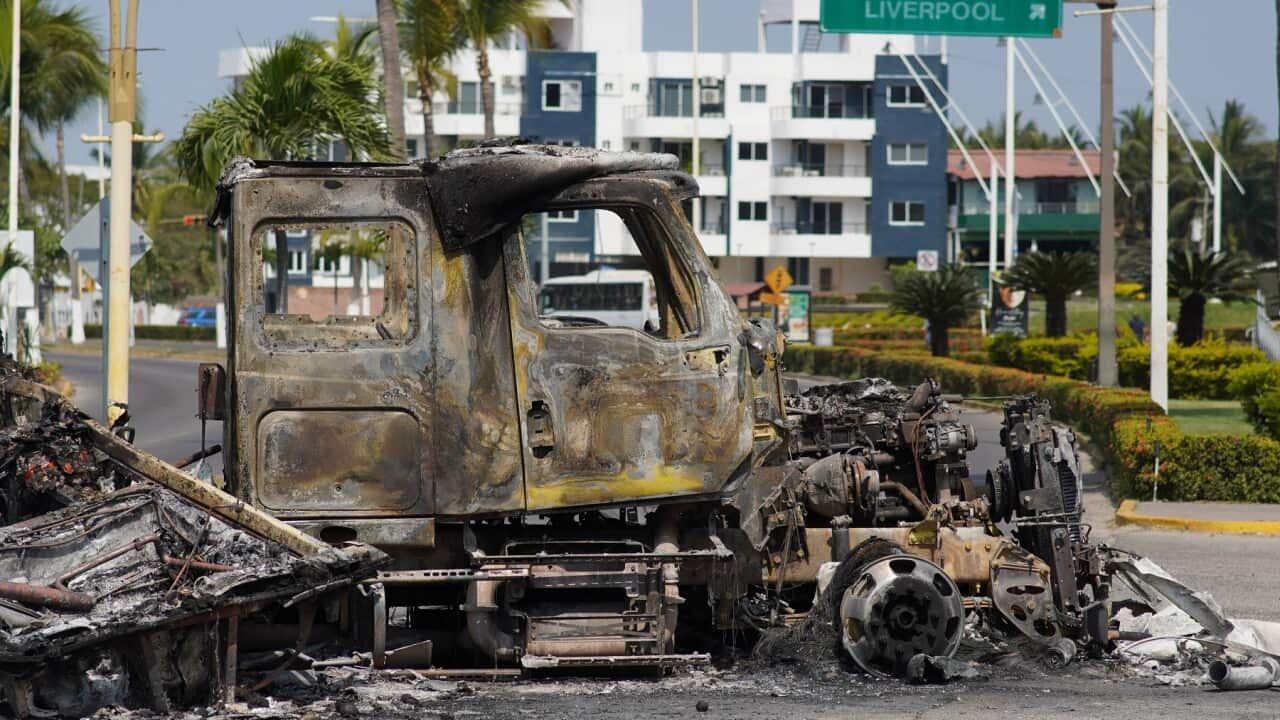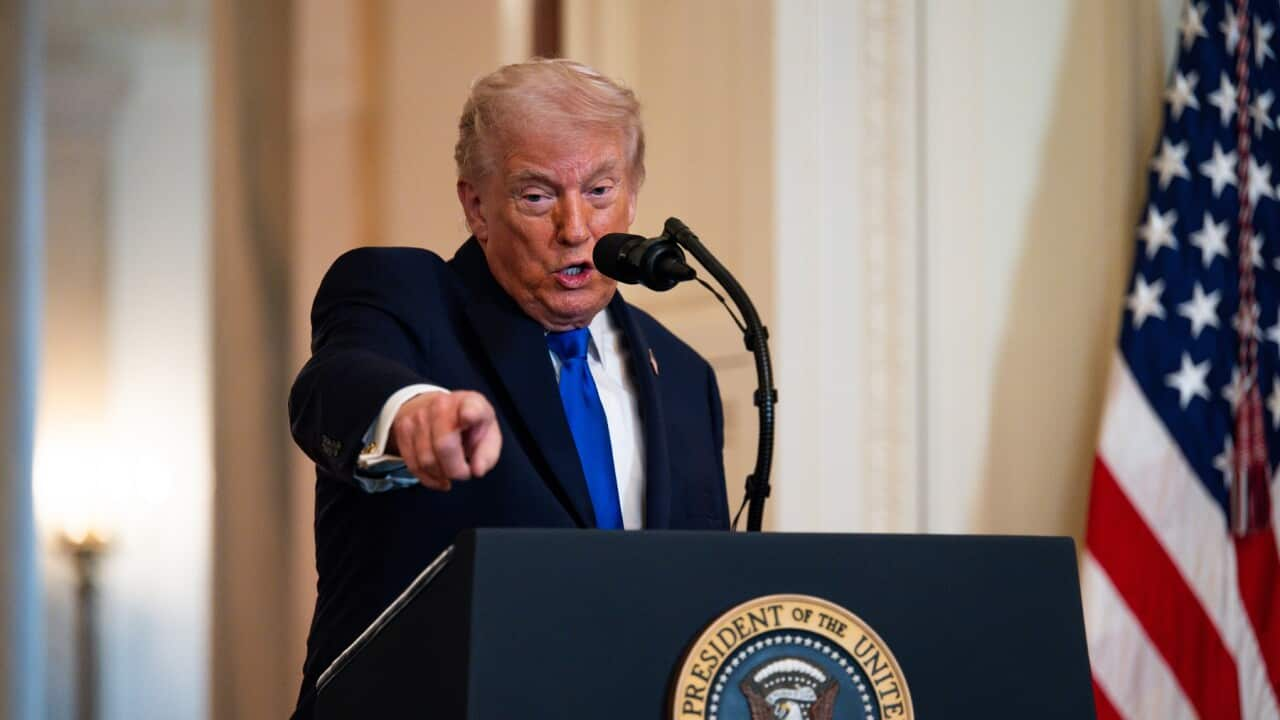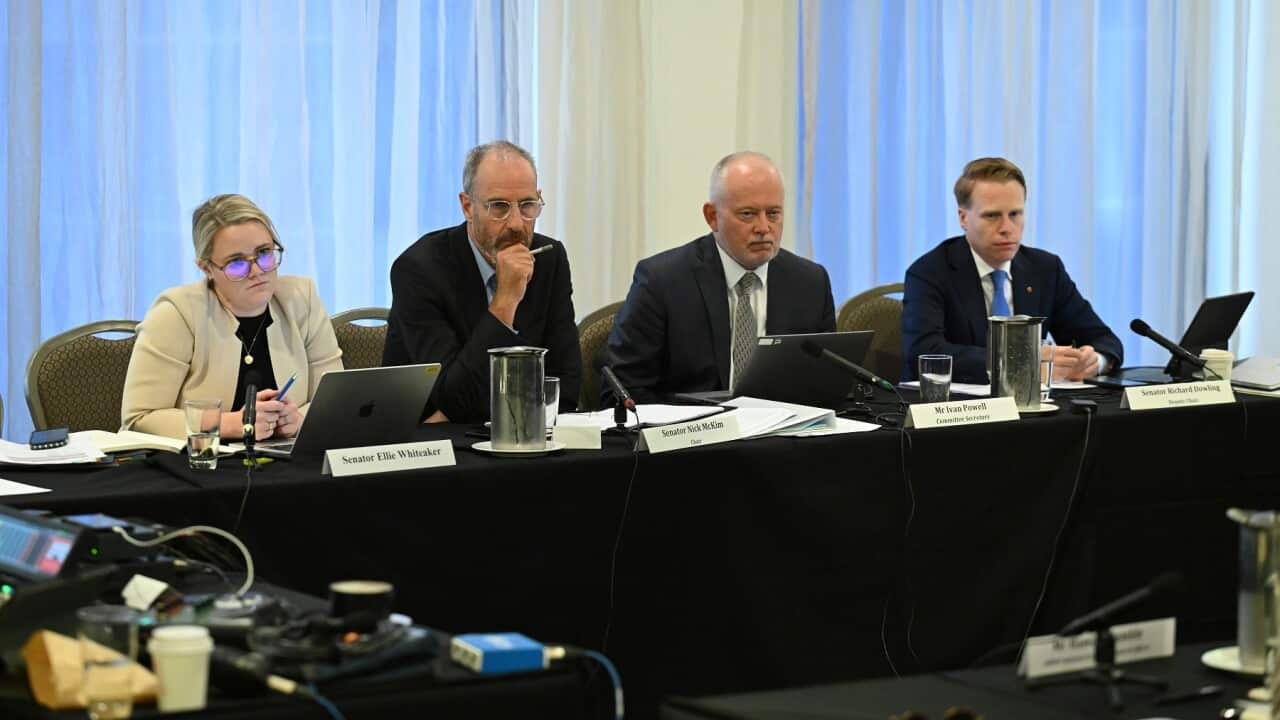Listen to Australian and world news, and follow trending topics with SBS News Podcasts.
TRANSCRIPT
At the UN headquarters in New York, 116 countries voted in favour of a resolution introduced by Germany, expressing grave concern about Afghanistan’s humanitarian situation, particularly the rights of women and girls under Taliban rule.
The United States and Israel voted against, while a dozen countries, including China and Pakistan, abstained.
Germany’s Ambassador to the UN, Antje Leendertse, facilitated the resolution.
She said the measure reaffirmed the international community’s continued engagement with the Afghan people.
“The situation in Afghanistan remains of concern to the international community. The United Nations and its member states remain engaged on the future of Afghanistan and its people. And that is the main message of the resolution before us. As the facilitator of this resolution, Germany has actively engaged all UN member states over the past weeks and months.”
She acknowledged that while many find the Taliban’s governance deeply troubling, engagement remains unavoidable.
“As many others, Germany acknowledges that there is no alternative to engagement with the Taliban, and we will continue to actively contribute to the UN-led Doha process. We support the approach of the UN working groups and remain open for further pragmatic forms of cooperation with the de-facto authorities, including on the safe return of Afghan refugees.”
But Afghanistan’s own representative to the UN painted a much bleaker picture.
Chargé d'Affaires Naseer Ahmad Faiq, who represents the ousted Islamic Republic, accused the Taliban of dragging the country backwards.
“ Afghanistan is at a crossroads. Since August 2021, the country has experienced alarming regression across all sectors, social, political, economic, and human rights. Nearly four years under Taliban rule have driven Afghanistan into one of the world’s gravest humanitarian and human rights crises, as extensively documented by the Secretary-General and the Special Rapporteur on the situation of human rights in Afghanistan.”
Mr Faiq supported the resolution’s call for inclusive governance and intra-Afghan dialogue, not Taliban rule by decree.
“The resolution rightly underscores that lasting peace in Afghanistan requires inclusive, representative, and participatory governance. We strongly support the call for a credible political process rooted in genuine intra-Afghan dialogue that reflects the diverse aspirations of all Afghans—women, youth, minorities, and civil society. The Taliban are a group which – should they wish – be part of the solution to Afghanistan’s crisis, but they can never be the sole solution by themselves.”
That message of cautious engagement comes at a delicate time.
Last week, Russia officially recognised the Taliban government, becoming the first country to do so since the group seized power in August 2021.
Moscow’s foreign ministry says it has accepted credentials from the Taliban’s appointed ambassador and called it the start of productive bilateral cooperation.
Taliban Foreign Minister Amir Khan Muttaqi welcomed the decision, calling it “a good example for other countries.”
No other country has formally recognised the Taliban government that took over after US-led forces staged a chaotic withdrawal from Afghanistan following 20 years of war.
However, China, the United Arab Emirates, Uzbekistan and Pakistan have all designated ambassadors to Kabul, in a step towards recognition.
The Taliban has been seeking international legitimacy, while maintaining strict enforcement of their version of Islamic law, including banning girls from secondary schools and restricting women from work and public life.
The UN resolution is symbolic and carries no legal force, but it reflects global unease about rewarding a regime many still view as illegitimate.













